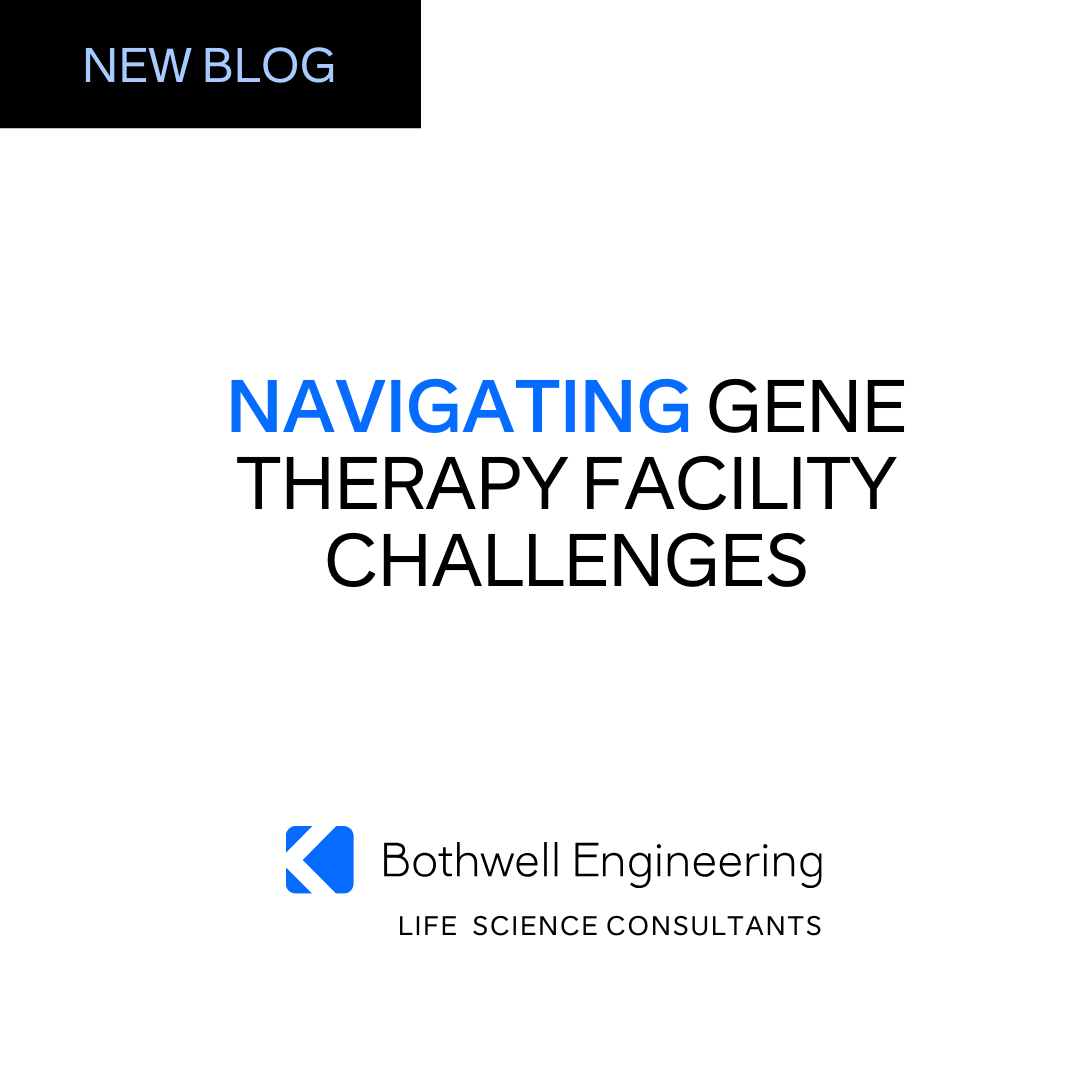
Imagine a world where diseases with no cure were suddenly healable through the power of genes. That's the promise of gene therapy—a revolutionary approach that's changing the face of medicine. But like every great innovation, it comes with its own set of unique challenges. Let's explore the intricacies of gene therapy facilities and common approaches to overcome associated challenges.
Gene Therapy Facilities
Gene therapy is at the forefront of medical innovation. The facilities that manufacture these groundbreaking therapies are specialized to handle the unique challenges associated with gene therapy production. These facilities must meet stringent standards to ensure the safety and effectiveness of therapies.
Unlike traditional biologic production, such as monoclonal antibodies (mAb), gene therapy processes operate at smaller scales. To accommodate this, facilities often feature multiple smaller suites running parallel processes. Preventing cross-contamination is crucial in this setup, requiring careful consideration of the facility layout. A common design element is unidirectional traffic flow within production suites.
Non-viral gene therapy processes have additional challenge with use of heavy solvents for synthesis of RNA molecules. This typically requires electrically rated equipment and processing areas with significant code compliance risks
Additionally, gene therapy often involves viral vectors, which pose an extra risk of cross-contamination. This necessitates large areas of the facility to meet biosafety level 2 (BSL2) standards, compared to biosafety level 1 (BSL1) used in mAb production. These differences in biosafety requirements contribute to the complexity of gene therapy facilities.
Specialized Infrastructure
Building a gene therapy facility requires specialized facility infrastructure to comply with strict regulations and ensure the safety of both company employees and patients. Contamination control must be integrated into the design, with strategies such as advanced HVAC systems, biohazardous waste handling, and vaporized hydrogen peroxide decontamination. While some of these systems are also used in traditional biologics facilities, gene therapy demands a more rigorous approach.
Climate
Since gene therapy facilities often rely on unidirectional traffic flows and parallel processing, HVAC system design is critical to prevent cross-contamination. One strategy is to use segregated zones with dedicated air handling units and use single-pass air, to avoid recycling contaminated air into other processing suites. Another approach is to use the air pressure differentials to contain contamination to one area. Unidirectional suites require airlocks on both the ingress and egress sides, and the air pressure in these airlocks can be modified to keep out foreign contaminants and contain local ones. A combination of these strategies will help mitigate the spread of contaminants throughout the facility.
Waste Handling Strategies
Safe handling of viral vectors also involves controlling the waste stream. In gene therapy facilities, this is often managed with an integrated liquid biowaste inactivation skid. Dedicated piping directs liquid waste from production suites to a system that inactivates viral and biological contaminants. Solid waste must either be contained and shipped to a qualified vendor or treated on-site using autoclaves.
Decontamination
Cleaning and decontamination are essential in gene therapy facilities. Viral contaminants must be eliminated between product runs, and the efficiency of decontamination methods directly affects facility throughput. A common solution is an integrated vaporized hydrogen peroxide (VHP) system, which quickly decontaminates viral processing areas and improves run turnover rates. These systems add complexity to HVAC control strategies as well as safety procedures and equipment, but when properly implemented, they offer significant benefits to gene therapy processes.
Workforce Shortages and Skills Gaps
Another challenge is the shortage of skilled professionals in the field. Gene therapy is a highly specialized area requiring a workforce with advanced technical expertise. Training qualified personnel is crucial for facilities to maintain their operations and drive innovation. The demand for skilled workers often exceeds the supply, creating a bottleneck in the industry. Bothwell Engineering has a strong network of innovators alleviating this issue for our clients.
Addressing Gene Therapy Challenges
Despite these challenges, many facilities today have been built or converted to produce gene therapy products. Continuous investment in research and development, along with strategic partnerships, can help facilities enhance their capabilities. Bothwell Engineering Consultants play a vital role in guiding facilities through these challenges, providing expertise and support.
The Role of Technology in Overcoming Challenges
Technology is a powerful ally in addressing the challenges faced by gene therapy facilities. To produce cutting-edge therapies, using state-of-the-art, purpose-built equipment is essential. Single-use technology is widely used in gene therapy processes to reduce cleaning, contamination risks, and product turnover times. Additionally, automating critical and challenging process steps helps streamline operations, minimize errors, and lower costs.
Opportunities for Innovation and Growth
While challenges exist, the opportunities for innovation and growth in gene therapy are immense. Facilities that successfully navigate these challenges can lead the way in developing groundbreaking treatments. Collaboration across the industry can accelerate progress, bringing therapies to patients more quickly.
Gene Therapy Consulting Facilities by Bothwell Engineering
With diverse expertise across client sites, our consultants provide critical insights and solutions that drive innovation forward. As we navigate industry complexities, the promise of gene therapy continues to shine, bringing hope and healing to countless individuals.
Get in touch today to see how we can support your success.